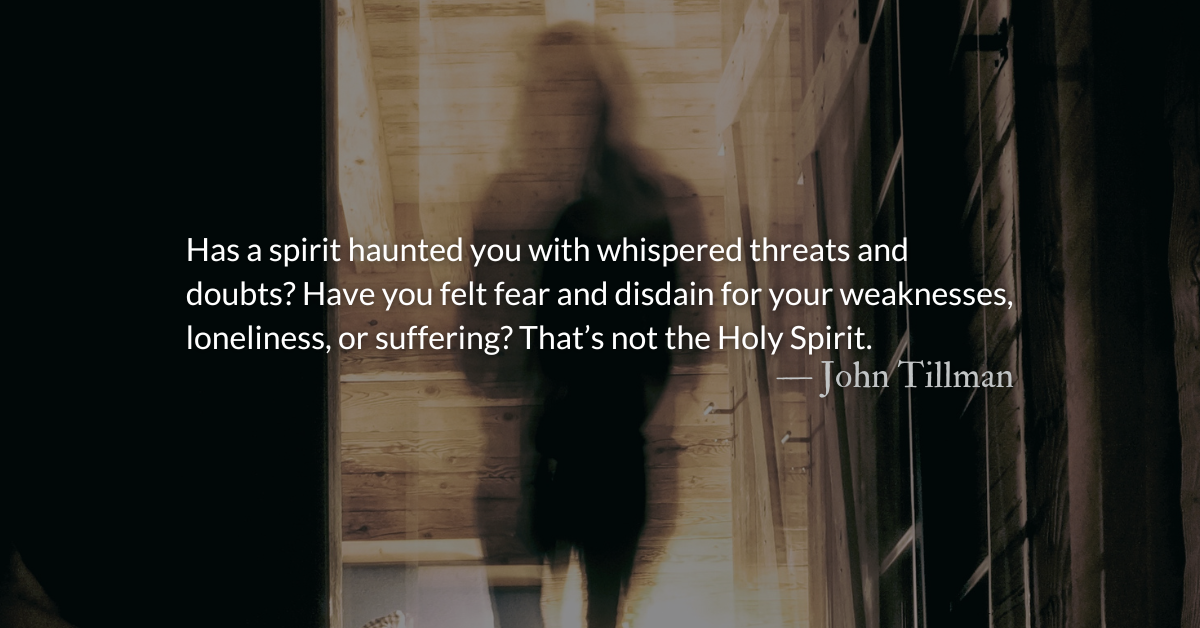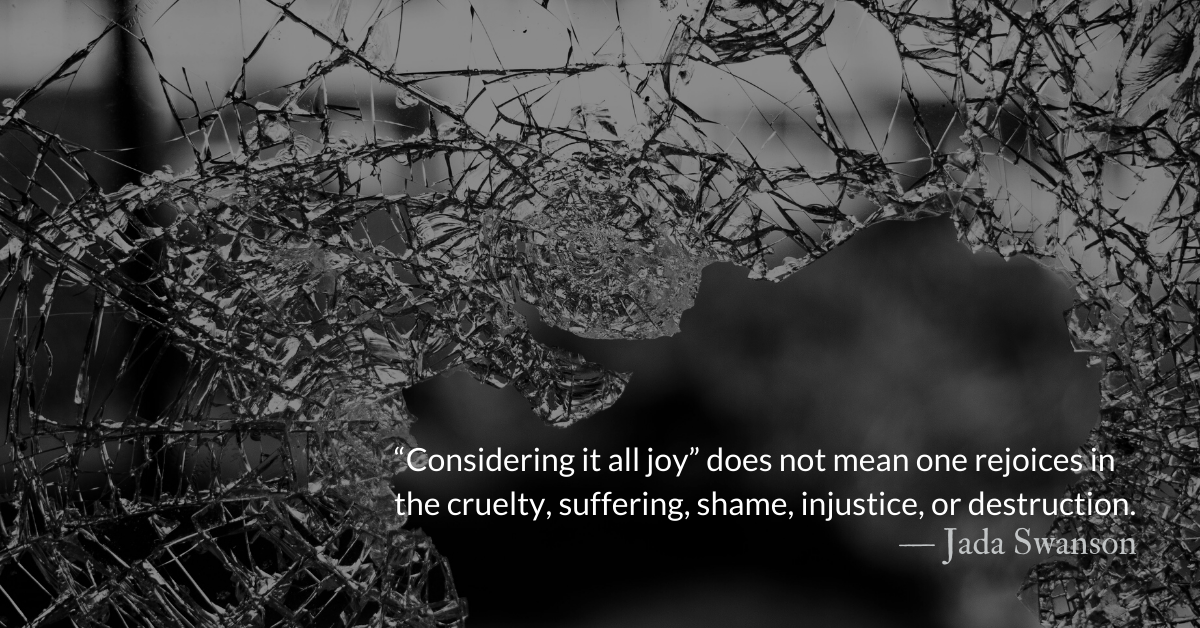Scripture Focus: Job 4.15-19
15 A spirit glided past my face,
and the hair on my body stood on end.
16 It stopped,
but I could not tell what it was.
A form stood before my eyes,
and I heard a hushed voice:
17 ‘Can a mortal be more righteous than God?
Can even a strong man be more pure than his Maker?
18 If God places no trust in his servants,
if he charges his angels with error,
19 how much more those who live in houses of clay,
whose foundations are in the dust,
who are crushed more readily than a moth!
20 Between dawn and dusk they are broken to pieces;
unnoticed, they perish forever.
Reflection: Haunting Spirit
By John Tillman
In A Christmas Carol by Charles Dickens, spirits “haunt” Scrooge and terrify him, but their motivation is hope and love. Their conviction influences Scrooge to repent of his wickedness and live in righteous generosity of both spirit and finances.
Job’s friend, Eliphaz, describes a visitation from a frightening spirit that delivers a warning message. What spirit is this? Does the frightening appearance of Eliphaz’s apparition conceal a kind nature and good purpose, like Dickens’ fictional spirits? Or is it a malicious spirit aligned with Satan’s goal of causing Job to curse God? How can we test this spirit? (1 John 4.1-3)
Job’s friends want to help him. Much of what they say sounds good until we scrutinize it. One question they address is human expectations from God. Do we get good for doing good and bad for doing bad? Eliphaz describes a world like that, but is it the real world?
Do we live in a world where the innocent never perish and the upright are never destroyed? (Job 4.7) Do we always see those who plow evil and trouble reap it? (Job 4.8) How often do great lions break their teeth and starve for lack of victims? (Job 4.10-11) We may want these things to be true, but they aren’t. We don’t live in that world.
Like Eliphaz and Job, we live where Satan roams “throughout the earth, going back and forth on it.” (Job 1.7; 2.2) He is the most terrible of roaring lions. Satan ensures evil reaps profit and the innocent perish. Satan makes the world unfair, then points the finger at God. He did so with Eve and Job and will do so with us.
Eliphaz’s spirit offers humanity threats rather than comfort. It proclaims that lowly dirt creatures have no hope if spirits are judged and punished. Humans are to be crushed and not remembered.
Has a spirit like this haunted you with whispered threats and doubts? Have you felt fear and disdain for your weaknesses, loneliness, or suffering? That’s not the Holy Spirit.
The Holy Spirit haunts us with hope and love. He brings conviction but never shame or disdain. He influences us to repent of wickedness and live in righteous generosity. This year, may we shut out spirits like Eliphaz’s and be benevolently haunted by the Holy Spirit as we wait for the day the Lamb, the child of Mary, will break the fangs of Satan, the Lion.
Divine Hours Prayer: The Request for Presence
Save me, O God, for the waters have risen up to my neck. — Psalm 69.1
– From The Divine Hours: Prayers for Summertime by Phyllis Tickle.
Today’s Readings
Job 4 (Listen 2.06)
John 4 (Listen 6:37)
Read more about Well Equipped for Good or Bad
We typically put a lot of thought and emotional and financial investment into equipment we rely on.
Read The Bible With Us
Moments of reflection prepare us for moments of decision. Reflect on the Bible with us at a sustainable, two-year pace.









